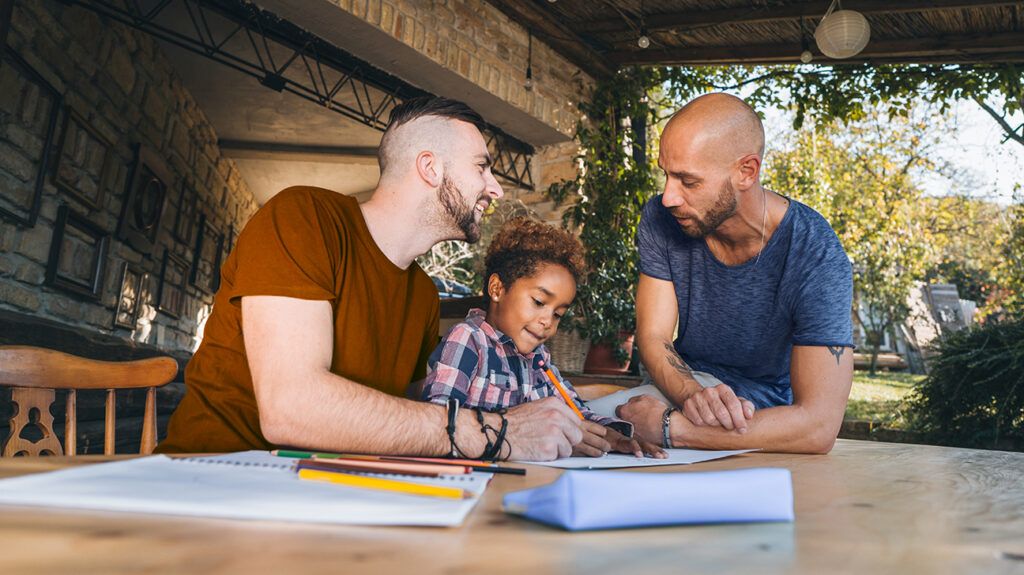At some point, most children ask where they came from. When your adopted child poses this question, what will you say?

Experts agree that telling your adopted child the truth is the best solution. But the question of how to tell your child they’re adopted can feel intimidating to parents.
One thing is clear — even if you’re not sure what to say, it’s better to bring up the topic early than to postpone it indefinitely. The sooner your child knows the truth, the better.
If your child is young enough, you can make their adoption something they’ve always known about themselves.
Early disclosure means that when your child asks questions about who they are, you’ll already have the topic of adoption woven seamlessly into the conversation. It will be as natural as the connection you have with them and an integral part of their understanding of themselves.
Children benefit from knowing the truth about significant identity factors, such as adoption.
Late discovery adoptees (LDAs) vouch very strongly for parental transparency on this subject. They cite distress and lower life satisfaction as some of the effects of not knowing the true identity of the adults who raised them and the existence of unknown biological parents.
It’s not they were adopted that causes distress. Instead, LDAs experience emotional disruption because they were not told the truth about their identity.
Healthy attachment
When parents are honest with their child about adoption, they nurture trust, an important part of the parent-child bond known as attachment.
The American Psychological Association states that successful attachment creates a foundation for emotional, cognitive, and social development.
Talking with older kids
If you have an older child who doesn’t know they’re adopted, it’s still important to tell them the truth.
While you’re reminding them of their importance in your life, you can also explain that you weren’t sure when and how to tell them. It’s OK if parents don’t have all the answers if your conversation is sincere.
Benefits of being honest
Maintaining trust isn’t the only benefit of telling your child the truth about their adoption. Other ways this information benefits them include:
- providing the opportunity to access their family medical history
- protecting them from the shock of finding another way, such as accidental disclosure from a another relative or family friend
- offering them the chance to learn more about themselves, like whom they resemble or from whom did they inherit their hair color
- preventing the possibility of shame that may result from hiding their story
Most experts agree that the conversation about birth origin should begin sooner rather than later.
It’s recommended that you start with the very basics when your child is young. As they grow and ask questions, you can provide more detail.
Age-appropriate conversations
It’s OK if your child doesn’t understand what adoption means when you first tell them. What matters is that when they are old enough to understand, they won’t feel unsettled by the added information.
They’ll already know they’re adopted and feel secure that you haven’t kept important facts from them.
A mixed-method study from 2019 involving 254 adopted adults revealed higher life satisfaction for those whose parents told them they were adopted before 3 years of age.
Normalizing adoption with open communication
Study participants said they preferred open communication and they benefited from supportive relationships. They also described contact with their birth parents and other adoptees as beneficial coping methods.
Consider regularly including the topic of adoption into your conversations, from the moment you bring your child home. Tell them how lucky you feel to have adopted them.
Normalize adoption by talking about all the diverse types of families that exist.
There’s no one-size-fits-all script for your adoption dialogue. Each situation and every child are unique.
But there are various strategies to consider that could make your conversation easier:
Challenging conversations
Your child’s adoption story might be complicated or difficult to discuss with them. If your child asks about their birth parents, you might not know what to say right away — and that’s OK.
Having honest conversations with your kids can be important for your relationship and their peace of mind. People who are adopted often learn about their birth parents and origins eventually. Hearing their adoption story from a parent can strengthen your trust.
Keeping difficult information age-appropriate may ease stress for both you and your child. As your children grow up, you can revisit the conversation and explain more details.
For example, you might simply start by saying that your child’s birth parents weren’t well enough to take on the responsibilities of parenting.
Wherever you are in your adoption dialogue with your child, keep in mind that you’re not alone. It’s OK to reach out for support from the people in your life and to build new connections with other adoptive families.
Children are resilient when they have secure and trusting relationships with parents, adoptive or otherwise. Your love and support help them navigate life’s changes and challenges.
Adoption resources for kids and parents
Parents have an abundance of sources to turn to for guidance and help, both for themselves and their children.
